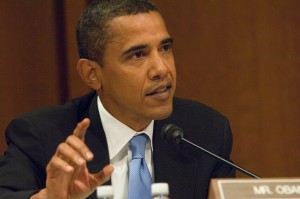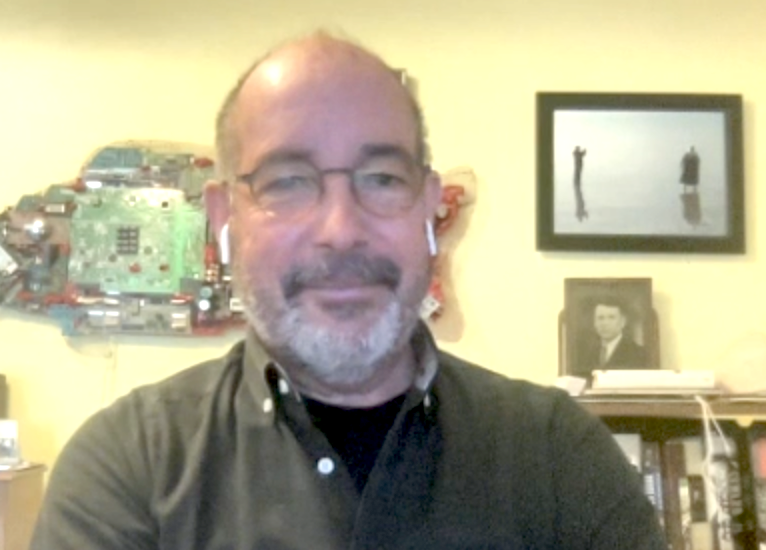
A former brothel manager who helped the FBI bust a national prostitution ring. A retired sheriff who inadvertently helped a money launderer buy land. A young woman who mailed ecstasy tablets for a drug-dealing boyfriend, then worked with investigators to bring him
All of them and hundreds more were denied pardons by President Obama, who has granted clemency at a lower rate than any modern president, a ProPublica review of pardons data shows.
The Constitution gives the president unique power to forgive individuals for federal offenses. While pardons do not wipe away convictions, they can restore a person’s full rights to vote, possess firearms and obtain business licenses, as well as remove barriers to certain career opportunities and adoptions. For many applicants, a pardon is simply an opportunity for a fresh
But Obama has parceled out forgiveness far more rarely than his recent predecessors, pardoning just 22 individuals while denying 1,019.
He has given pardons to roughly 1 of every 50 individuals whose applications were processed by the Justice Department. At this point in his presidency, Ronald Reagan had pardoned 1 of every 3 such applicants. George H.W. Bush had pardoned 1 in 16. Bill Clinton had pardoned 1 in 8. George W. Bush had pardoned 1 in 33.

Obama also has been stingy with commutations, applications for early release by those still serving federal prison sentences.
Under Reagan and Clinton, applicants for commutations had a 1 in 100 chance of success. Under George W. Bush, that fell to a little less than 1 in 1,000. Under Obama, an applicant’s chance is slightly less than 1 in 5,000.
He has commuted the sentence of one individual, a woman with terminal leukemia whose case was championed by Illinois Sen. Dick Durbin.
“This idea of ‘tough on crime’ took root around the time of Ronald Reagan and it is striking that President Obama is showing so much less mercy than Reagan,” said Jeffrey Crouch, a political science professor at American University and the author of “The Presidential Pardon Power.”
Matthew Lehrich, a spokesman for the Obama administration, said in a statement Thursday that the president took his power to grant clemency “very seriously.”
“Each recommendation received from the Department of Justice is carefully reviewed and evaluated on the merits,” Lehrich said.
To determine who receives clemency, Obama, like his predecessors, relies on recommendations from the Office of the Pardon Attorney, the arm of the Justice Department that reviews applications. The office — led by Pardon Attorney Ronald Rodgers, a former military judge and federal prosecutor — rarely dispenses endorsements, however.
Several administration officials who agreed to discuss pardons on the condition of anonymity said the president pardoned nearly every person recommended by Rodgers for approval in his first two years in office, but that such applicants were few and far between. While the number of applicants has increased in recent years, Obama — based on Rodgers’ recommendations — is denying more people more swiftly than any of his recent predecessors, the data shows.
“I don’t think he has been given the same opportunity, by this process, to look at these petitioners as his predecessors were,” said Mark Osler, a law professor at St. Thomas University in Minneapolis who launched the country’s first law clinic for commutations.
Currently, two government officials said, there are about a dozen positive recommendations and hundreds of negative ones waiting for the president to act on.
At least one commutation request is pending. The White House also has asked for a fresh review of the case of Clarence Aaron, who is serving a triple life-sentence, without parole, for his role in a drug conspiracy. ProPublica and The Washington Post published a story about Aaron’s case in May.
Obama last granted pardons in November 2011, weeks before ProPublica and the Post published a series of stories that found that between 2001 and 2008, white applicants were nearly four times as likely to be pardoned as minorities. African American applicants fared the worst, almost never receiving the pardons office’s recommendation. The Justice Department has commissioned an independent study to examine ProPublica’s findings.
Given the potential for political blowback, presidents often do not grant pardons while running for re-election. Presidents Obama, Clinton and the first President Bush did not pardon anyone during their campaigns for second terms.
Still, Obama’s views on clemency remain largely unknown as he has not publicly commented on this presidential prerogative.
Judge Abner Mikva, an early mentor of the president who served as Clinton’s first White House counsel, said that before the 2008 election he and Obama had discussed Clinton’s pardon of financier Marc Rich. The pardon for Rich, whose ex-wife was a major donor to Democrats, was seen as a damaging political favor, even by many Clinton supporters.
“I do remember a lengthy discussion about Marc Rich and it wasn’t so much about the power as it was about how even a good president can be corrupted by the pardons process,” Mikva recalled. “I think Marc Rich looms larger with Barack Obama than with other presidents because I think he was very, very dismayed by the Marc Rich pardon and the basis on which it appears to have been granted.”
Since the ProPublica series, there have been growing calls to reform the pardons process from civil rights groups, legal experts and current and former public officials.
Former Maryland Governor Robert Ehrlich, a Republican working for Romney’s presidential campaign, said he is set to start a law school clinic for pardons at Catholic University in Washington.
Paul Rosenzweig, a visiting fellow at the Heritage Foundation, a conservative Washington think tank, recently authored a study that recommends taking the clemency process out of the Justice Department’s hands.
“Moving the office outside of the Department of Justice would restore the pardon function to its traditional status as an exercise of pure presidential authority,” wrote Rosenzweig, who served as a policy adviser in the Department of Homeland Security during the Bush administration. “Including staff who are not exclusively career prosecutors would bring a more balanced perspective to the decision making and would eliminate the natural and understandable institutional tendency of prosecutors to be confident in the rectitude of their own judgment.”
The Justice Roundtable, a group sponsored by the George Soros-funded Open Society Foundations that seeks candidates for presidential clemency, also has begun work on a blueprint for reform.
Any individual convicted of a federal crime can apply for a pardon five years after completing his or her sentence.
Katie Barribeau applied five years ago but was denied by Obama in mid-2011.
In 2001, when she was 22, Barribeau was arrested for helping her boyfriend mail ecstasy from a military base in Germany back to the United States for sale. Confronted by military investigators, she immediately confessed and cooperated. In exchange for her assistance, she was sentenced to five years of probation and a $1,000 fine for conspiracy to import ecstasy.
In the decade since, Barribeau has had no further legal troubles. She left the Army, returned to the United States and completed college in Wisconsin. Today she is married and a manager at the Green Bay company where she has worked for the last 10 years.
Barribeau said she deeply regretted her involvement in the drug scheme and that a pardon would help her in several important ways. Her company frequently holds meetings in Canada, which she cannot attend because of her conviction. She and her husband are trying to start a family and some states bar those with federal felony records from adopting.
“I want to vote, I want to have the kind of career opportunities that I have worked hard for and I want to be a new mother,” she said in an interview. “But I wonder sometimes, what if I can’t get pregnant, what if I want to adopt? Is this going to prevent me from being a mom?”
Still, the pardons office recommended her for denial, writing that she “lacked the maturity to resist being manipulated by others.” Their evidence? She helped a different former boyfriend purchase a snowmobile for $6,000 and was still paying off the credit card debt when her application was pending. In a confidential memo to the White House obtained by ProPublica, the pardons office said Barribeau needed more time to demonstrate she had been fully rehabilitated.
The pardons office does not disclose its reasoning to applicants and Barribeau was stunned when we shared the contents of the memo with her.
“I had a rough patch and it was a first offense that I was terribly sorry for,” she said. “But I don’t want it to be on my record for the rest of my life, I want a second chance.”
On the same day that Obama denied Barribeau’s pardon application, he also turned down a request from James Poteete.
Poteete, a retired municipal worker from the Arkansas hamlet of Morrilton, pleaded guilty in 1997 to a count of failing to file a currency transaction report for his role in what turned out to be a friend’s money-laundering scheme. He was sentenced to three years of probation and a $3,000 fine, which he paid immediately.
Poteete has no other criminal history and wrote on his application that he sought a pardon so he could obtain a hunting license and “for peace of mind.” But the pardons office found reason to deny him too. Although he completed his sentence 11 years earlier, lawyers in the office deemed it too soon to consider forgiveness. “Additional time is needed to establish rehabilitation worthy of pardon,” the office wrote in a memo to the president.
The pardons office looks favorably on community service and wrote that Poteete had “no civic involvement,” though Poteete had worked as a police officer, a sheriff and then with his town’s public works department. His application included character references from the current police chief and sheriff, as well as the sheriff of a neighboring town.
“I waited seven years after my probation was over before I applied. I don’t see how I need more time,” Poteete said in an interview.
Poteete called it “a shame” that so few individuals are pardoned. “I can’t believe Obama pardoned just 22 people,” he said. Still, he said he would try again in the spring, when the two-year wait period for reapplying is up. “There is no doubt that I will reapply .”
Mary Price, of Families against Mandatory Minimums, a non-partisan Washington group that advocates for sentencing reform, said worthy applicants deserved the president’s consideration.
“These are people who completed their sentences, who have since led good lives and are asking this administration for a second chance and this administration is turning its back on them,” Price said. “I cannot believe there are fewer deserving people today than there were during the administrations of his predecessors.”
ProPublica is a non-profit investigative journalism site.





